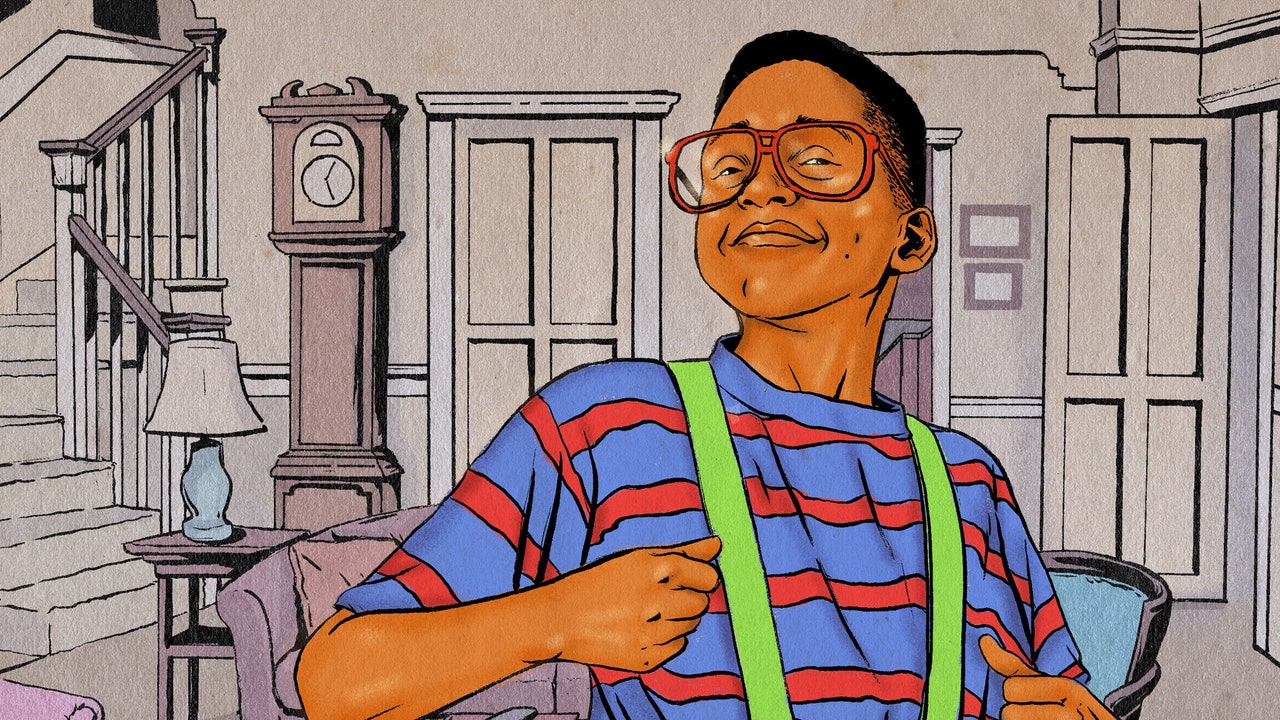Introduction
In the pantheon of television characters, few have undergone as striking a transformation as Steve Urkel, the quintessential nerd from the beloved sitcom “Family Matters.” Debuting in the late 1980s, Urkel quickly became not just a recurring character, but the heart and soul of the show, evolving from a quirky neighbor to a cultural icon. This article delves into the journey of Urkel’s character, examining how he challenged stereotypes, influenced perceptions of intelligence, and resonated with audiences across generations.
The Birth of Urkel: A Cultural Context
When “Family Matters” premiered in 1989, America was undergoing significant societal shifts. The late 80s and early 90s saw a rise in shows that explored family dynamics, social issues, and the challenges of growing up in a diverse America. Urkel, portrayed by Jaleel White, was introduced as a guest character in the first season; however, his unique personality and eccentricities quickly captured the audience’s hearts.
Character Traits and Popularity
Steve Urkel was characterized by his high-pitched voice, thick glasses, suspenders, and clumsiness. His catchphrase, “Did I do that?” became synonymous with his character and contributed to his widespread recognition. Unlike many other characters on television at the time, Urkel was unabashedly himself; he embraced his nerdiness and intellect, which was a departure from the often glorified jock or “cool kid” archetype.
Breaking Stereotypes: Urkel as an Icon of Intelligence
Urkel’s character presented a nuanced portrayal of intelligence in a medium often dominated by simplistic representations. He was not just a comic relief; he was a brilliant inventor and a computer whiz. By showcasing a character who was both socially awkward and academically talented, “Family Matters” challenged the negative connotations often associated with being smart.
- Promoting Individuality: Urkel’s unapologetic embrace of his identity encouraged viewers, particularly young audiences, to celebrate their differences.
- Redefining Masculinity: In an era where masculinity was often associated with physical prowess, Urkel redefined what it meant to be a man by emphasizing emotional intelligence and creativity.
The Evolution of Urkel: From Sidekick to Star
As the series progressed, Urkel’s character developed beyond the archetype of the awkward nerd. He experienced growth, both personally and relationally. His infatuation with Laura Winslow, the show’s female lead, added depth to his character and allowed for exploration of themes such as unrequited love and self-acceptance.
Impact on Pop Culture
Urkel’s influence extended beyond television. He became a symbol of the 90s, referenced in various media forms, from cartoons to music. His character contributed to the popularization of nerd culture and the acceptance of intelligence as an admirable trait. In many ways, Urkel paved the way for future nerdy characters in television and film, as seen in shows like “The Big Bang Theory” and movies like “Superbad.”
Urkel’s Legacy: Longevity and Resonance
The legacy of Urkel is evident in the way he continues to resonate with audiences today. The character has become a nostalgic figure for many who grew up in the 90s, and the show remains a staple in syndication. Urkel’s influence can be seen in various ways:
- Merchandising: From action figures to apparel, Urkel’s image has been commercialized, reflecting his status as a cultural icon.
- Social Media: Memes and references to Urkel flood social media platforms, showcasing his enduring popularity.
Revisiting Urkel in Modern Media
In recent years, Jaleel White has revisited his iconic role, appearing in various interviews and podcasts where he reflects on the impact of Urkel. His discussions often highlight the importance of representation and the need for complex characters in media. As conversations around diversity and inclusion continue to evolve, Urkel stands as a reminder of the power of storytelling in shaping cultural narratives.
Broader Implications: The Evolution of Nerd Culture
Urkel is emblematic of a broader shift in how nerds and intellectuals are portrayed in media. The character’s rise to fame coincided with the burgeoning acceptance of geek culture in society. Today, being a nerd is often celebrated, with conventions, fan communities, and a plethora of media dedicated to science fiction, fantasy, and technology.
The Shift in Perception
Whereas Urkel’s character initially faced ridicule for his intelligence, contemporary narratives have shifted to embrace and celebrate characters similar to him. The emergence of characters like Peter Parker (Spider-Man), who balances heroism with geekiness, reflects a growing acceptance of intellectualism as a core part of identity.
Conclusion
Steve Urkel’s journey from a quirky neighbor to a cultural icon is a testament to the power of television in shaping perceptions of intelligence, individuality, and acceptance. As audiences continue to consume media that celebrates diversity in character representation, Urkel remains a significant figure who paved the way for a more inclusive portrayal of nerd culture. His legacy serves as a reminder that embracing one’s uniqueness can lead to profound connections and cultural impact, inspiring generations to come.
See more CNET Live

